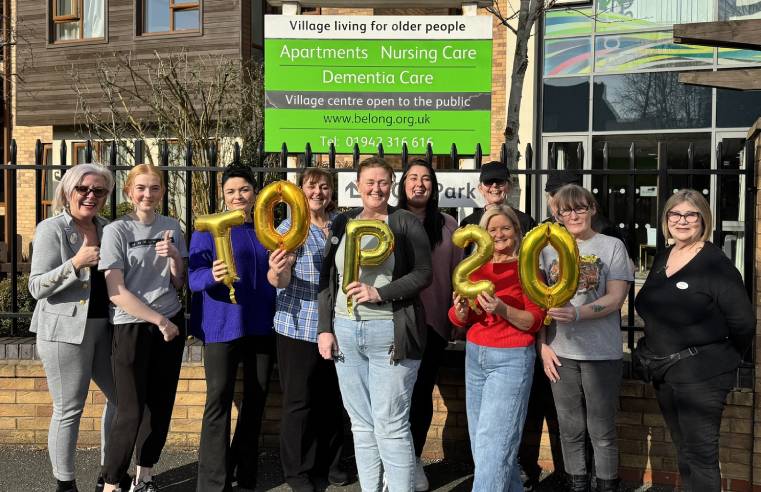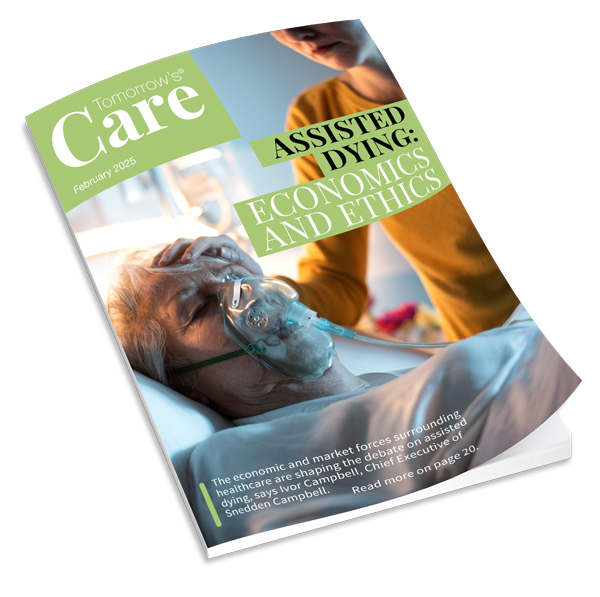Alzheimer’s Society, people affected by dementia and a cross-party group of MPs yesterday called on the Government in Parliament to listen to people with dementia and urgently address the social care workforce crisis.
As social care job vacancies hit a record 165,000, the group urged Government to prioritise the social care workforce, providing better pay, career progression and mandatory dementia training to ensure people with dementia can live the lives they want to.
With the number of people living with dementia in the UK set to rise to 1.6 million by 2040, from 900,000 today, the pressures on the social care system are set to grow even further.
Alzheimer’s Society said it was critical to create a workforce now which could deliver the care people with dementia need. Currently people with dementia make up 70% of residents in care homes and 60% of people who access homecare.
The Workforce Matters report from the All-Party Parliamentary Group on Dementia, chaired by Debbie Abrahams MP and supported by Alzheimer’s Society, calls for a 10-year People Plan to create a social care workforce that is skilled and supported to provide high-quality personalised care for people living with dementia.
A survey of nearly 2,000 people affected by dementia revealed less than half felt care staff had a good understanding of dementia and over a quarter of people didn’t feel involved in the care received.
People interviewed for the report revealed carers lack dementia training and can sometimes struggle to deal with more challenging needs; people with dementia are faced with a revolving door of changeable carers, unable to build meaningful relationships; and family members often aren’t consulted about their loved one’s care and feel a lack of control.
Kate Lee, CEO at Alzheimer’s Society, said: “We’re going to need 480,000 more social care staff by 2035 to meet growing demand, but we need to make sure they’re actually supported, respected and incentivised to stay. Hardworking care staff desperately want the skills, time and support to do their job well, but they’re over-stretched and under-resourced. The Government have pledged £500m but this is nowhere near enough given the size of the workforce and the scale of change needed, and we’ve heard nothing about the fundamental issue of pay. The average care worker earns just £9.50 an hour, and shockingly 400,000 care staff earn less than the lowest wage paid by major supermarkets.
“Prime Minister Rishi Sunak must prioritise social care. We need to see better pay and career progression, mandatory training in dementia and an audit of the current workforce knowledge and skills. A People Plan is the only way to build a better system for people with dementia, their families and hardworking care staff.”
The call to reform the social care workforce comes after 26,000 Alzheimer’s Society campaigners signed the charity’s open letter to the Prime Minister, due to be handed in shortly, with ambassador Vicky McClure’s heartfelt plea to her social media followers raising signatures by over 8,000.
The APPG’s report stresses that it’s not just people with dementia and their families in need of change in social care. Ex-care manager Sam Evans used to work for a large care provider but left to run her own business as visit time restrictions meant she couldn’t provide the care she wanted to.
Trevor Salomon, 70, from North London, whose wife lives with dementia, said: “My family is lucky that my wife, Yvonne, has received amazing care from dedicated care staff. Her care home is wonderful – they’ve helped her to explore her interests from feeding birds in the garden to baking. But that’s not the case for everyone. If the Government fails to implement its promised social care reforms, including the cap on care costs, then so many more care workers and families affected by dementia will find themselves facing a dire financial situation, only adding to the challenges they face every day. We need a People Plan for social care so that care workers are supported to give everyone the quality care my wife is able to receive.”
The full report can be viewed at alzheimers.org.uk/workforcematters.
Sign Alzheimer’s Society’s open letter to the Prime Minister to urge the Government to prioritise dementia here.


























